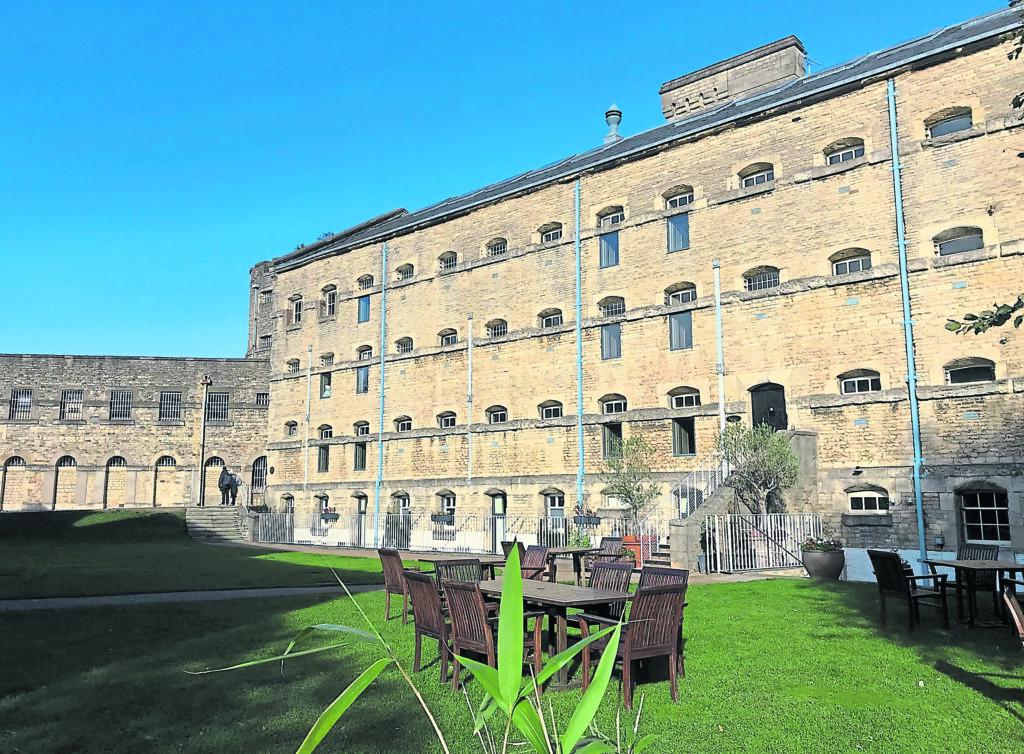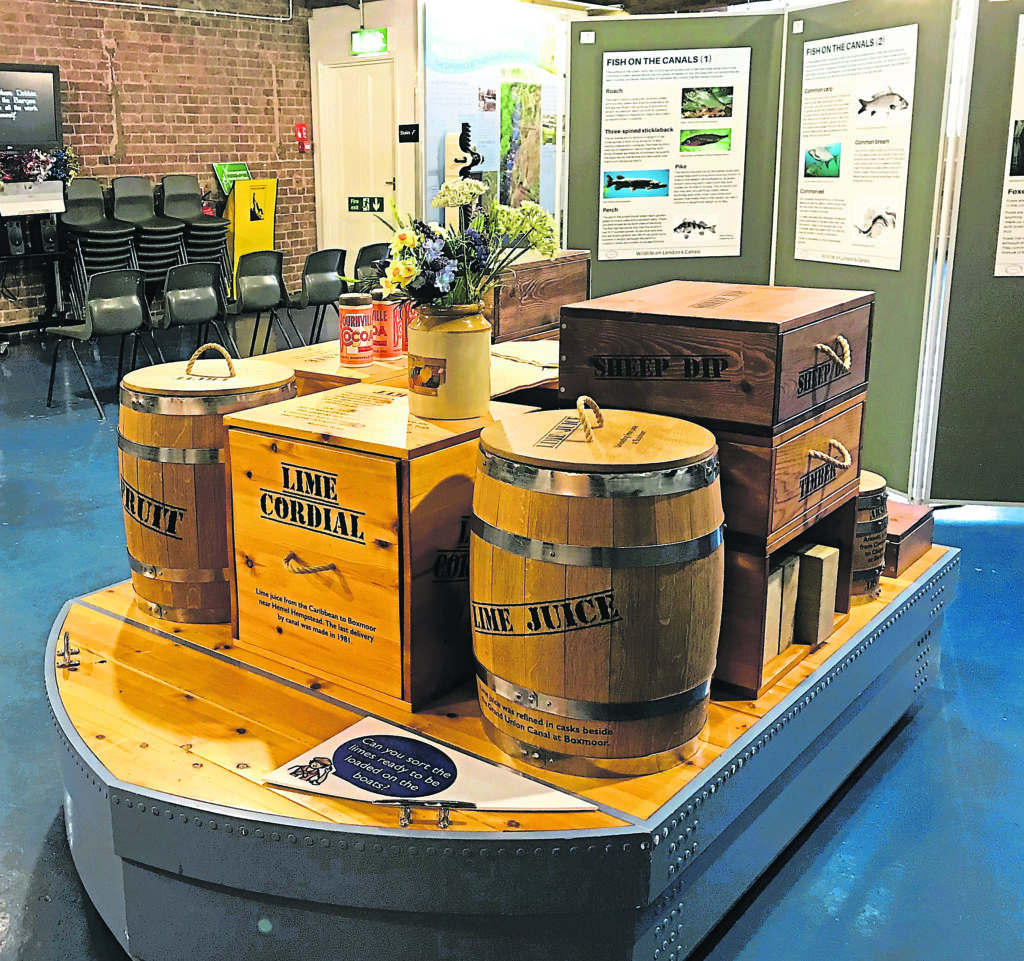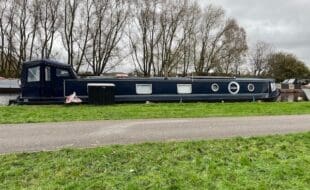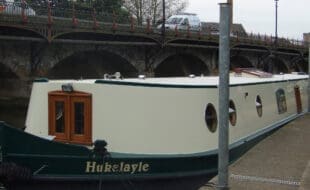In the latest in her family history series, Nicola Lisle looks at how you can trace ancestors who fell foul of the law…
IF YOU’VE hit a brick wall with any of your ancestors – such as names suddenly disappearing from census returns – it’s possible they had strayed from the straight and narrow.
Crime was rife among canal boatmen, ranging from drunkenness, fighting, vandalism, poaching and other petty pilfering to rioting, house-breaking, arson and murder. Punishments included imprisonment, execution or transportation.
The most high-profile crime on the canal network was the alleged rape and murder of 37-year-old Christina Collins, a dressmaker from Liverpool, whose body was found in the canal at Brindley Park, Rugeley, on June 17, 1839, two days after she set off for London aboard a Pickford’s canal barge.

The crew – 39-year-old Captain James Owen, George Thomas (27) and William Ellis (28) – were later convicted of her rape and murder and sentenced to be hanged at Stafford Gaol, despite protesting their innocence. Ellis was reprieved on the eve of the execution and sentenced to transportation for life instead.
Christina was buried in St Augustine’s Churchyard, Rugeley, and her headstone records how she was ‘barbarously treated’ and ‘found dead in the canal in this parish on June 17th 1839, age 37 years’. A wooden sculpture was later erected in her memory alongside the Trent and Mersey Canal at Stone, and her story inspired Colin Dexter’s 1989 Inspector Morse novel, The Wench is Dead.
Not all crimes were quite so dramatic, but they were prolific. Boatmen plundering their own cargoes, either for themselves or to sell, was widespread, and many became ingenious at finding ways of escaping detection by the toll offices. Siphoning off a small quantity of beer from a barrel and topping it up with water was a favourite, as was stealing tea, sugar, coal and other useful commodities.
Thieving from other boats’ cargoes, stealing from warehouses and private dwellings around the canal, and poaching from private estates were also common.

Drunkenness was another everyday problem, often leading to fighting and vandalism. The Derby Mercury of February 24, 1813 reported that 21 men, ‘chiefly boatmen’, appeared before the magistrate in Manchester charged with ‘riotous conduct in the streets of the town’.
Some boatmen were guilty of cruelty to their horses. In 1858, Thomas Witton – described in the Birmingham Post of March 23, 1858 as a ‘rough, ill-looking fellow’ – was sentenced to six months in prison by Birmingham Police Court for beating his horse ‘in a most savage and brutal manner’.
Researching criminal ancestors
If your ancestor fell foul of the law, there are plenty of records to help track him or her down. A good starting point is The National Archives’ guide: www.nationalarchives.gov.uk/help-with-your-research/research-guides/criminals-and-convicts This resource gives detailed information and links relating to prisoners held in prisons or on prison hulks through registers, statistics, correspondence and more. The most useful records include:
· Criminal registers for England Wales 1792-1892 (series HO26 and HO27), which can be searched online via www.ancestry.co.uk or www.findmypast.co.uk; details include date and place of trial, sentence if convicted and personal information about the prisoners.
· Prison hulk registers and letter books 1802-1849 (series HO9), searchable via the ancestry site.
· Criminals, convicts and prisoners 1770-1935. Search findmypast for Home Office records including criminal petitions (HO18 & HO19), various prisoner/criminal registers and statistical returns (HO23, HO24, HO26 and HO27), judges’ reports 1784-1830 (HO47), Newgate Prison Calendar 1782-1853 (HO77) and Calendars of Prisoners 1868-1915 (HO14).
· Photographs of prisoners. Photographing criminals became compulsory in 1870 with the passing of the Prevention of Crimes Act. Records have survived from Pentonville and Wandsworth prisons and Oxford Gaol and are searchable on findmypast.
· Calendars of prisoners tried at Assizes and Quarter Sessions (HO140). Prisoners tried before 1915 are available online via findmypast; records from 1916 onwards need to be viewed at The National Archives.
If your ancestor was transported, see www.nationalarchives.gov.uk/help-with-your-research/research-guides/criminal-transportation for information and links. Records are searchable via the ancestry site. The majority of records relate to transportation to Australia from 1776; early transportation was to North America and the West Indies, but few records from this period have survived.
Local record offices hold records relating to local prisons and courts, and you may find local family historians have produced useful transcripts or collections. Oxfordshire Black Sheep Productions, for example, has published transcripts of Oxford Quarter Sessions and transportation sentences from Oxfordshire courts, as well as Oxford Gaol Prisoner Portraits 1870-1881, compiled from The National Archives and local archives.
Another useful site is Black Sheep Ancestors (www.blacksheepancestors.com), where you can search prison, convict, execution and court records.
Further reading
David T Hawkings, Criminal Ancestors (The History Press, 2009)
Stephen Wade, Tracing Your Criminal Ancestors (Pen & Sword, 2009)





